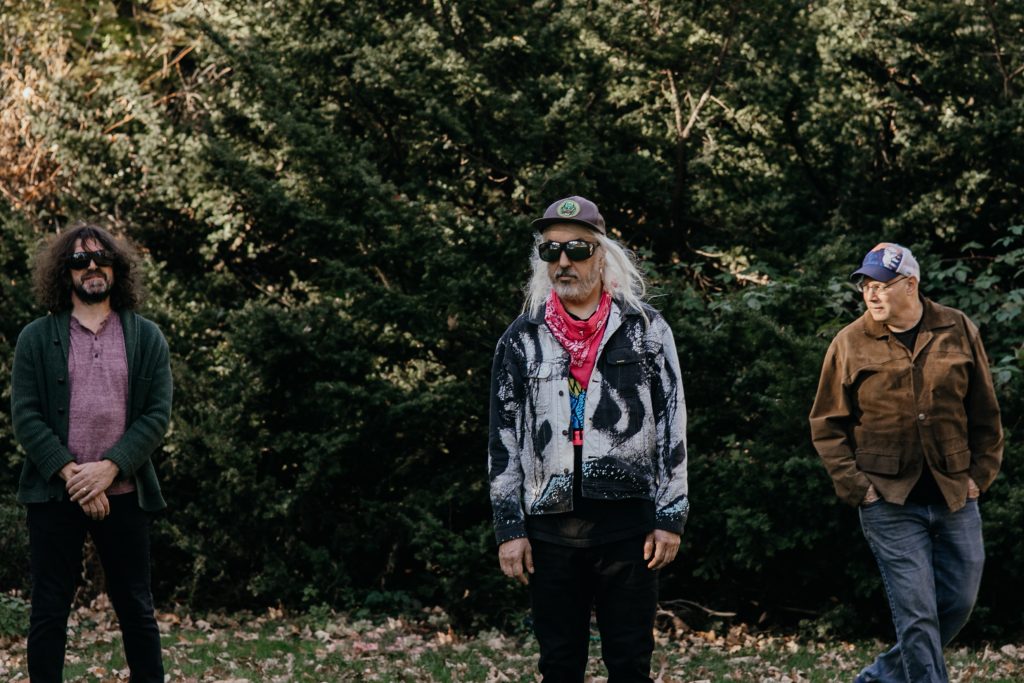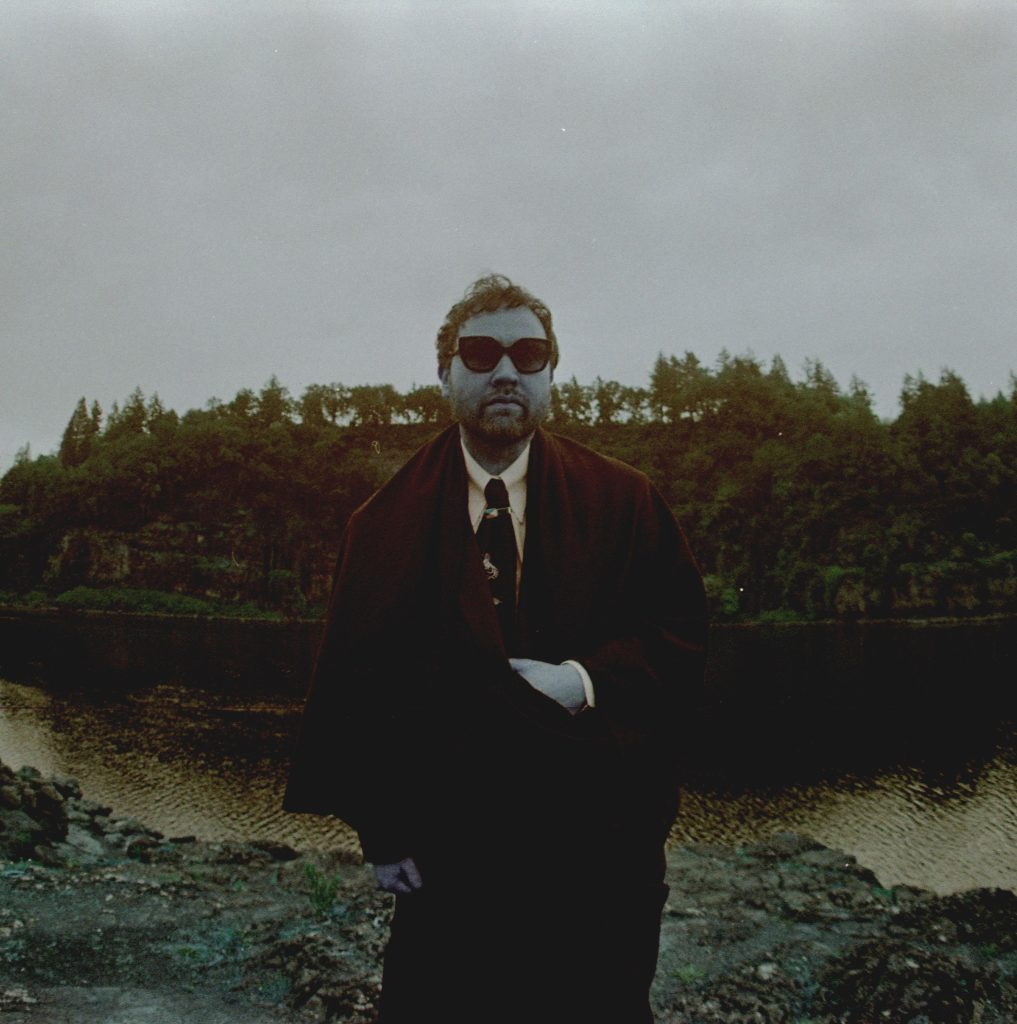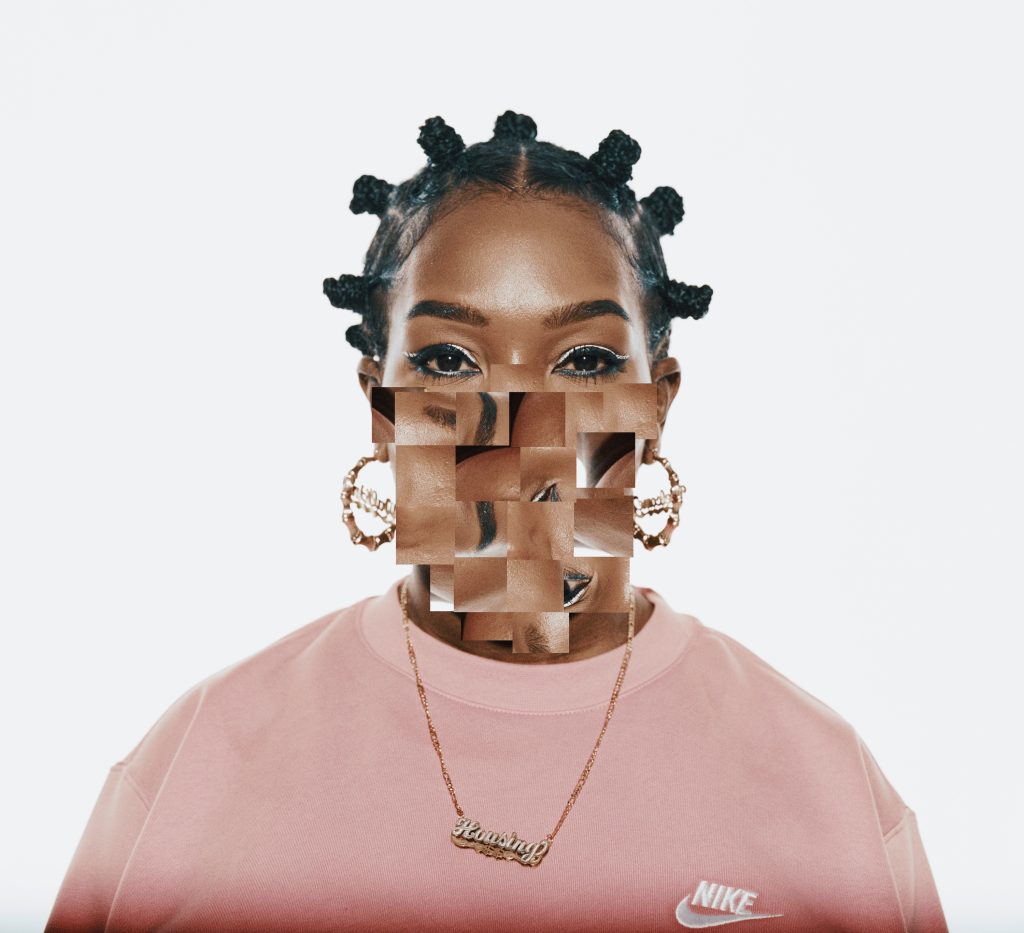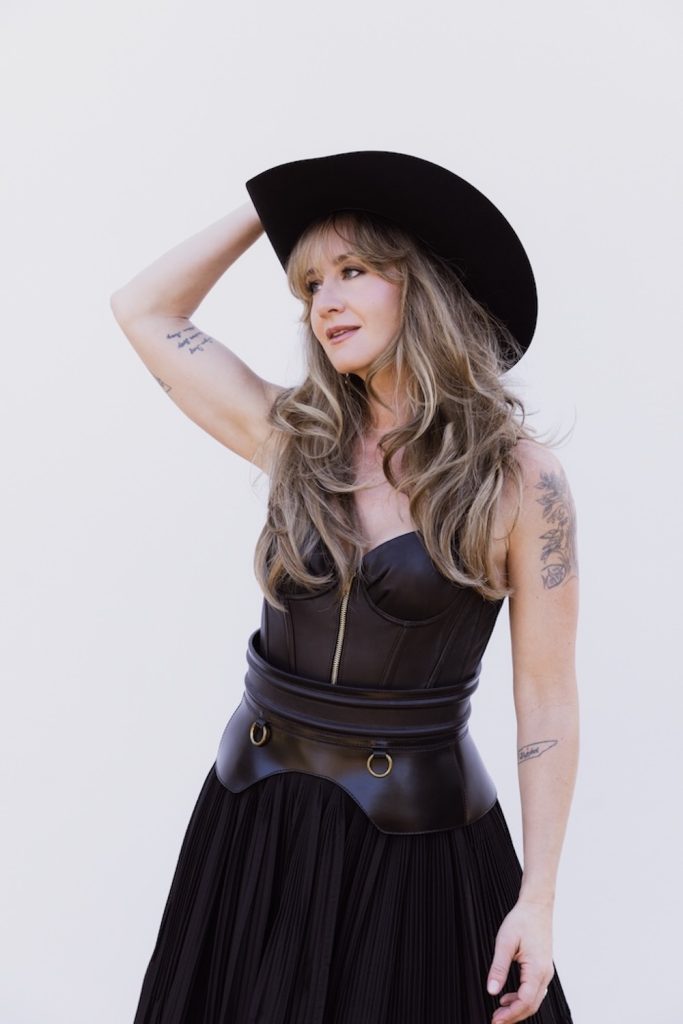
The eleventh Treefort Music Fest is coming: March 22-26, 2023! Get your passes now!
Catch Dinosaur Jr., Unknown Mortal Orchestra, Margo Price, Leikeli47, Cautious Clay, Ani DiFranco, Godspeed You! Black Emperor, Surf Curse, Built to Spill, Petey, Rayland Baxter, Tig Notaro and hundreds more!
Explore bands from all over the world, yoga sessions, film screenings, storytellings, loads of laughs, technology hacks, local food and beer, community collaborations on many fronts ++ a ton of unforgettable moments over five days across multiple venues in downtown Boise. #treefort11 | March 22-26, 2023
Dinosaur Jr.
Dinosaur Jr. was founded in 1984 and the group emerged among the most highly regarded in alternative rock. By reintroducing volume and attack in his songs, Mascis shed the strict limitations of early 1980s hardcore, becoming an influence on the burgeoning grunge movement. Mascis’ body of work continues to inspire a generation of guitar players and songwriters today.
When the original line up of Mascis, Lou Barlow on bass and drummer Murph re-formed in 2005 for select live dates it was apparent that the years apart had not eroded any of their vitality. Restoring the sound established by the opening hat-trick gambit of Dinosaur, You’re Living All Over Me, and Bug, 2007’s Beyond continued the band’s march into rock greatness by making old ears smile and new ears bleed afresh. The original lineup has now released five studio albums since their reunion, most recently 2021’s “Sweep It Into Space” on Jagjaguwar Records.

Unknown Mortal Orchestra
Unknown Mortal Orchestra’s newest EP, CURSE, reflects the cursed times we find ourselves in. The EP is as cathartic a listen as the band has ever recorded, featuring abrasive riffs reminiscent of Black Sabbath alongside the intricate, laid-back guitar playing UMO is perhaps best known for.
CURSE not only brings catharsis to the band’s discography, but a new way of performing. The band will play each show without a setlist, fully unleashing their propensity for spectral, experimental jams and raw spontaneity. These performances are UMO at their freest, with each night unfolding into a new ritual of sound – unpredictable, unrepeatable, and alive in the moment.

Leikeli47
Leikeli47’s stunning new album, Shape Up, is both an ending and a beginning. Quite literally, it is the finale of the trilogy she’s been working on since her career took off. It began in 2017 with her debut album, Wash & Set. The second of the three-album run, Acrylic, was released just a year later. But between that project and Shape Up, Leikeli took her foot off the gas and instead focused on personal growth, health, and refining a positive mental makeup. The result is her strongest album to date, a stunning proclamation of individual self-love and general Black love, an exclamation point on one of the strongest three-album runs in modern rap. It’s bound to usher in a new era for the cerebral, whimsical artist. “Shape Up truly feels like my first album. It’s the craziest feeling,” says Leikeli on the new project. “I feel like this is my first time out and no one knows me. I’m finally about to embark on a journey where I’m diving into my fans and they’re diving into me. It’s a fun process.” This is the origin story that serves as an antithesis to wrapping up her trilogy. With Shape Up, Leikeli is bursting at the seams with creativity, like a newly unfrozen faucet beginning to flow with water. Sure, Shape Up is the last album in Leikeli’s Beauty series, one fans have come to know and love as an intimate document of a girl growing up, but it’s also a brand new beginning. It’s sparkling, shining, and fresh, which is something Leikeli brings to everything she makes. This confidence was hard earned, though. After Acrylic, Leikeli had lost her way, and couldn’t see where she belonged both in her community and within the music industry. Self-reflection is hard, and the work wore on her, but Leikeli emerged from this hibernation with a newfound joy that bounces off every note of Shape Up. “When you’re going through it, you don’t have the mindset to just look up and appreciate the work. It took me a while to realize this, but Acrylic was my celebration of the struggle, but I only know that now,” explains the LA-based MC. “Shape Up is the defining moment where it just all made sense. I looked at the things that didn’t fold me and I just said, ‘I’m here.’” Shape Up is a celebration of the work while the work is still happening. It’s what makes the album so tremendous. There’s a passion for struggle that is never exploitative. Leikeli made it out of the shit, and she knows you can too. Take “LL Cool J,” which marries her love of Black culture with her deep knowledge as a rap historian. She sings, “When I walk by, tell me what do you see? You see a young LL Cool J.” The minimal beat kicks in, giving Leikeli plenty of space to showcase her one-of-a-kind flow that she performs in a knowing half-whisper. It’s playful but unendingly serious at the same time, a balancing act that confirms Leikeli as a technically brilliant MC. Then there’s “Carry Anne,” which is a defiant, raunchy feminist anthem destined to be the song of the summer. Over electro synths, handclaps, and bouncy bass, Leikeli sounds like she’s creating a manifesto for radical self-love in real time as she unfurls quintessential aphorisms like, “Baby make ‘em play by your rules.” It’s simple, but all good truths are. Shape Up is a reflection of Leikeli47 becoming great. She’s proud of the work and has no problem celebrating the grind. Confidence isn’t egoism. Leikeli is loud about her success because she knows what it took to get there. “I wanted to be better than anything you saw me do, anything you heard me do. I just wanted to be better. I wanted to be better sonically. I wanted to be a better human being,” she says. Shape Up is better, yes, but it’s also her best. Lyrically, musically, rhythmically, and more, Shape Up is Leikeli47 at an absolute peak. There are bound to be more summits on the horizon.

Margo Price
Nearly a decade ago, Margo Price turned Nashville on its head with her breakthrough,
beloved debut solo album, Midwest Farmer’s Daughter. Released in the throes of bro-country and
before pop stars were crossing over into the genre left and right, it showcased an artist completely
unafraid to double down not only on herself, but what she’d always loved: classic country songs
written from the intellect and the gut, hell-bent on truth-telling and both timeless and urgent all at
once. Respected by her peers, praised by critics and beloved by her fans, Price created a lane where
independent-minded, insurgent country music can exist and thrive alongside the mainstream, and
became an ardent fighter for her beliefs in a genre where the norm is to shut up and sing. A
trailblazer and a champion for the craft, Price redefined what it meant to be a modern country
artist.
And now she’s back with an exquisite, truly timeless album that reconnects with her roots
and pays tribute to the art of the country song, inspired in part by the legends whom she now calls
colleagues and friends. Hard Headed Woman is both a look forward and a look back: a way to
march forward while staying true to yourself when the path of less resistance is right there in front
of us, and short cuts are around every corner. And a way to look back when we need to trim what
is no longer working, and to stay connected with where we’re from. It is a promise and a manifesto,
a love song to both a city and a genre, and a defiant cry for individuality.
In creating Hard Headed Woman, Price brought all of her power as one of our most
beloved and respected songwriters to craft a deep exploration of love and America in a time of
unprecedented uncertainty. Featuring appearances from Tyler Childers, co-writes with Rodney
Crowell and a Waylon Jennings song that his widow, Jessi Colter, urged her to sing, it is country
music as only Price can make it: free of rules, cherishing tradition, hard headed to the core but
with a delicate, beating heart.
Since releasing Midwest Farmer’s Daughter, Price has barely slowed down. She’s made
four records, played Saturday Night Live, been nominated for a Grammy, toured the world
alongside artists like Chris Stapleton and Willie Nelson, released a lauded memoir (Maybe We’ll
Make It, due on paperback September 2nd), became an in-demand producer and was appointed as
the first female board member of Nelson’s Farm Aid. And she’s been fearless when it came to
genre, venturing into psychedelic rock on her most recent, Jonathan Wilson-produced record,
Strays. It would have been easiest to just stay that course, and keep running. But Price doesn’t
follow success or comfort. She follows the art.
It took a whole lot of hard work and honesty with herself and others to get there, but that’s
never stopped Price before. “I made the decision that I had to rebuild everything from the ground
up,” Price says. “There’s all this pressure to be pumping out content, and I felt the opposite in the
way I wanted to approach this record and my life in general.”
Price had also established herself as one of the most passionate, vocal artists in country
music and beyond when it came to standing up for political and personal causes, from the
presidential election, to abortion to gun control: happily hard headed when it came to the fight for
equality and justice, especially for the working class and underserved in our society. Price has
always brilliantly woven her activism into her songs, but her role as a spokesperson had started to
overtake, on occasion, her role as a songwriter. She wanted to focus on using her written word to
deliver the most potent punch of all.
“I always hope to do like Johnny Cash did,” Price says, “which is speak up for the common
man and woman. But there have been so many threats and anger and vitriol over the years, when
I am only coming from a place of love.”
Price realized she just needed a break from everything outside of the bubble of family life
and her art. She started spending more time at home, writing songs alone and with her husband,
Jeremey Ivey. She started popping up in the dive bars and tiny venues around Nashville where she
got her start, sometimes just to play a country cover or two or dance with the crowd. She refused
guidance to write for pop stars or compromise her values for a quick buck. Most of all, she turned
the emphasis in her music back to songwriting, exactly where she began.
“So much of Strays was leaning into this psychedelic, textural territory,” says Price. The
music lent itself to vibrant, heavy stage jams, with Price often hopping behind the drumkit and
bruising her thigh from a tambourine beat. She found herself longing for the days when it was just
her and her guitar, playing at an East Nashville dive bar. “I always knew,” she adds, “I would come
back to this more rooted sound.”
Hard Headed Woman is rooted to its core. Rooted in Price’s history and struggle to make
it as a musician for so many years in a town that prizes uniformity and the bottom line, rooted in
the country and folk sounds that have become her signature, rooted in the simplicity of a few key
collaborators instead of songs-by-committee. At the heart of Price’s work is her creative
partnership with Ivey, with whom she describes as having a “soul connection.” “I’m a songwriter,”
Price says. “I’m not somebody who goes out and needs five people to craft a song, and then tack
my name on it. That’s never been my style. I have something to say.”
Something to say, nothing to prove. The first song they wrote for the album that would
become Hard Headed Woman was “Close to You,” a simple, pining call for a lover that is infused
with the sounds of the desert. It’s unfettered and truth-telling, accented by some flamenco guitar
and Price’s gorgeous, urgent vocals. “We played the jukebox while democracy fell,” Price sings,
never letting her songs fall out of the context in which they exist. It’s the kind of thing that only
she could write, carrying both love and fear in one single line.
As more songs started to form, an early boost of confidence came from her friends Rodney
Crowell and Emmylou Harris, who heard some of the work at a political fundraiser and encouraged
Price to keep going. “I have both of them to thank for building me up and making me believe in
the songs I am writing in this season of my life,” Price says. Crowell remained not only an
inspiration and supporter of the album but a contributor: he co-wrote two songs with Price and
Ivey.
The album that unfolded from there is drenched in Price’s unique story and unshakeable
instincts: while Midwest Farmer’s Daughter was about her journey from childhood to Nashville,
Hard Headed Woman is very much her battle since from dive bars to tour buses, through
parenthood and marriage, through scrutiny and sacrifice all while fighting constantly for what she
believes in, and the music she loves. It begins with a proclamation on the prelude, which serves as
the album’s mission statement: or, Price puts it, “a disclaimer and reminder that I don’t owe you
fucking shit.”
Songs like the album’s lead single, “Don’t Let the Bastards Get you Down,” speak for the
downtrodden and the forgotten, an “anthem for people who are being overlooked in society and
need to be lifted up,” Price says, “because we are up against so much right now.” As so many of
Price’s songs do, it speaks both for the personal and the political all at once. Price was inspired by
the message Kris Kristofferson whispered to Sinead O’Connor when she was booed on stage at a
Bob Dylan 30th Anniversary show, and even got Kristofferson’s widow’s blessing to include his
name on the credits. “I always admired Kris for how he stood by her in that moment, instead of
pulling her off the stage like they told him,” Price says. It serves as a reminder to anyone who
encounters resistance in the face of fighting for justice to keep going, especially when it would be
so much easier to capitulate and cower.
“The song was originally written for a movie that never happened, but it feels so timely
with everything that’s going on in the world,” Price explains. “The phrase, ‘Don’t Let The Bastards
Get You Down’ originates from Margaret Atwood’s brilliant 1985 piece of literature, The
Handmaid’s Tale. It’s referred to in Latin and used as a rallying cry for resistance against the
oppressive regime that symbolizes resilience and hope in the face of adversity. Nolite te Bastardes
Caborundorum.”
That spirit resonates all across the songs of Hard Headed Woman. The blistering “Don’t
Wake Me Up” was based around some writings that Ivey stumbled upon in one of Price’s
notebooks, inspired in part by her deep readings of Frank Stanford, one of her favorite poets due
to his freewheeling work free of boundaries. They spun it all into song in minutes that chugs with
the essence of Dylan’s “Subterranean Homesick Blues”: “The way this world is going, ain’t where
I’m at,” Price howls in her powerful, unmistakable voice. “Nowhere is Where,” turns slow and
contemplative, road-worn but never broken, the call of someone who has been to the mountain but
never forgets the prairie below. And “Losing Streak” whirls in with an organ and out with a weary,
world-worn defiance: our worst times don’t define us, but they’re always part of who we are.
There are songs that go back to the beginning of Price’s early grind, like the western-tinged
“Wild at Heart,” reflecting on how much her life and the city of Nashville has changed over the
years – and how important it is to stay true to exactly who you are despite it all. Another, called
“Red Eye Flight,” is about both leaving a lover and also leaving her longtime band the Pricetags.
“I’ve been with those players for ten, thirteen years,” she says. “But I could feel that I needed to
make a change, and to change texturally what’s going on with the band. But it’s a familial bond,
different than a friendship.”
There are a few choice covers and cuts, too: “Love Me Like You Used To Do” is by Price’s
friend Steven Knudson, an unsung Nashville writer on whom she hopes to shine a spotlight
(helping to elevate the town’s incredibly talented but buried voices is one of Price’s favorite
pastimes). Friend Tyler Childers joins Price on that waltzing country ballad, while “I Just Don’t
Give a Damn” is Price’s “Jolene goes to Memphis” take on the Jimmy Peppers and George Jones
classic. And showcasing how Price has been trusted by the greats to lead the next generation of
country music renegades, “Kissin You Goodbye” was given to Price by Jessi Colter, Waylon
Jennings’ widow, when Price was producing her record. They’re songs chosen to appreciate the
past and the present as she sees it – not as Music Row or the algorithm might dictate – and place
Price squarely amongst her heroes as a living and breathing part of the new country tradition.
When it came time to record Hard Headed Woman, it was important for Price to keep that
ethos alive, decamping to Nashville’s RCA Studio A and reuniting with producer Matt Ross-
Spang, with whom she made her first two solo albums. Though she has worked with everyone
from Sturgill Simpson to Jonathan Wilson since, it was Spang’s vocal rebuke of easy studio
shortcuts that made her eager to reunite again. “He’s so unpretentious,” Price says. “He fully
believes in me, he fully believes in my songs. He got us back to feeling it in your gut and not
needing everything to be so perfect.”
It felt truly significant for Price to make the album in Nashville, a city where she’s lived
for over two decades and played a seminal role in its transformation, yet somehow never recorded
an album in the place she’s called home. The historic RCA Studio A helped connect Price even
closer to the legacy of songwriting she holds so dear, a place where everyone from Dolly Parton
to John Prine to Loretta Lynn have made albums. “It felt like there were ghosts and spirits just
hanging out,” Price says. In perfect kismet, she also launched her own signature Gibson J-45 guitar,
inspired by her 1960’s Gibson she’s had by her side for years as her career took off. It’s all part of
the continuity that she wishes to create with her art, not just with timeless songs but inspiring future
generations of women, mothers and artists in general who don’t want to sacrifice their vision,
moral compass or family life in favor of mainstream success.
At its core, Hard Headed Woman is about that furious instinct to never waver, especially
when ourselves, our values and our future is so clearly on the line. As she sings on the title track,
“I ain’t ashamed, I just am what I am.”
“I hope this album inspires people to be fearless and take chances and just be unabashedly
themselves,” Price says, “in a culture that tries as hard as it can to beat us into all being the same.”



